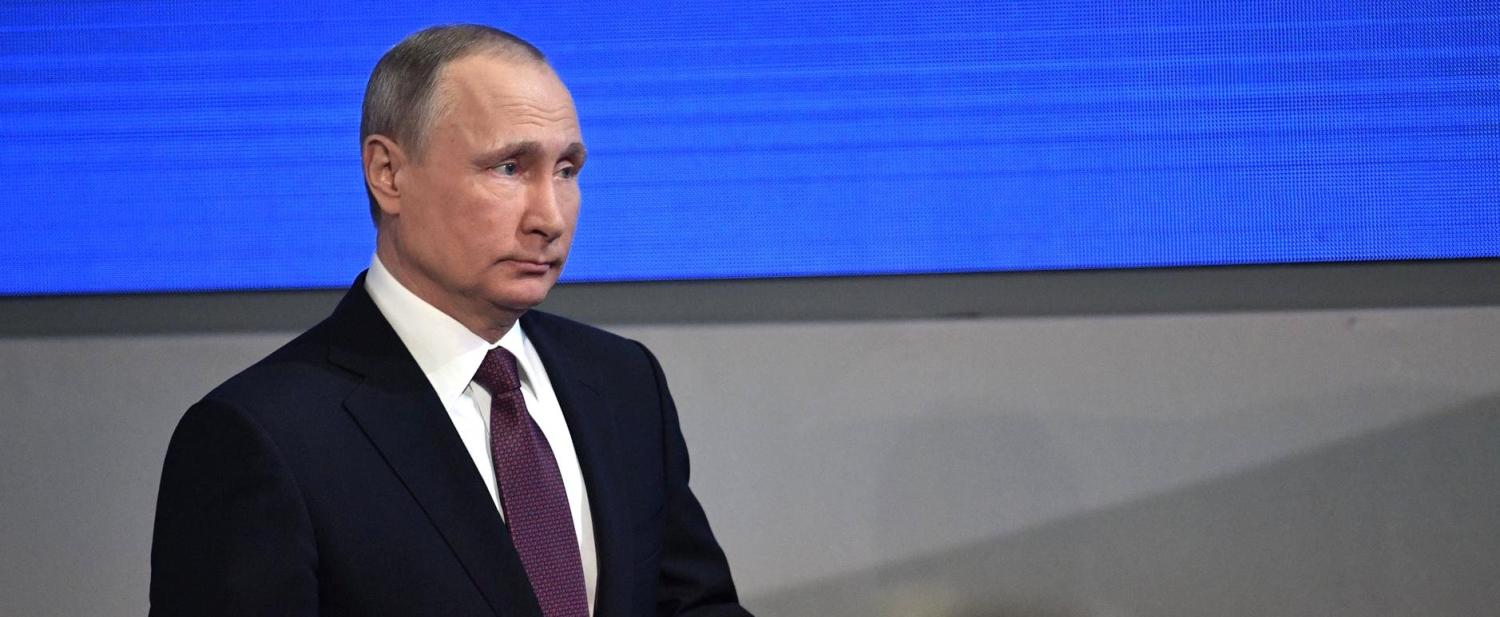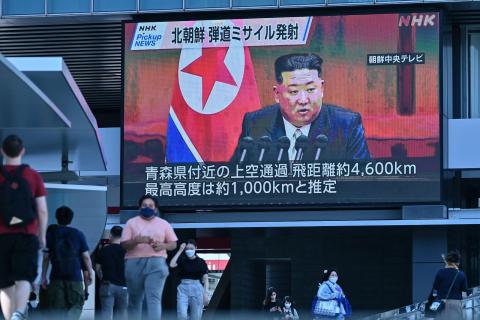Earlier this week the New York Times broke a story that Russia is fielding new cruise missiles in violation of the Intermediate-Range Nuclear Forces Treaty (INF). This is significant, not because Russia stands accused of violating the Treaty, but rather how and why.
The INF Treaty was negotiated between the US and the Soviet Union in the closing stages of the Cold War to reduce nuclear tensions in Europe. The Treaty banned each side from fielding missiles with ranges between 500km and 5500km in order to reduce the likelihood of Europe becoming a nuclear battlefield.
The accusation that Russia is non-compliant with the INF Treaty is not new. In its 2014 annual report on arms control compliance, the US State Department found Russia to be in violation of the treaty. This accusation was published in the wake of Russia's annexation of Crimea, when US-Russia relations had fallen to their lowest ebb since the end of the Cold War.
At the time, US officials minimised the threat this violation posed to US interests. Some analysts suggested that Russia's non-compliance was in response to the expanding nuclear arsenals of China and India, non-parties to the INF Treaty that are geographically close to Russia.
This was suspect. First, Russia has plenty of nuclear options for deterring China and India that did not violate the INF Treaty, not least a vast stockpile of intercontinental-range missiles. Second, ground-launched cruise missiles (GLCM), which is what Russia was accused of fielding in the State Department report, are among the least popular form of nuclear delivery vehicle. In short, the assertion that Russia's violation of the INF Treaty was about ultimate deterrence just didn't make much sense.
Yet it was in the interests of both the US and Russia to pretend otherwise. Russia could claim that any technical violation was due to external imperatives that did not undermine the spirit of the Treaty. Meanwhile, the Obama Administration was able to hit Russia over the head without having to do anything about its violation. After all, if Russia's non-compliance was ostensibly a response to China and India, then it was hardly destabilising to NATO.
The truth is certain to be more serious. The New York Times article says the missile is now operational, with a Russian missile battalion fielded consisting of around four mobile launchers that could 'substantially increase the threat to NATO nations', meaning the fiction about deterring China and India can be dispensed with.
So, if not for deterring China and India, why would Russia field new GLCMs in violation of the INF Treaty? Without access to classified documents it's impossible to do more than speculate, but there is one clear imperative for the Russians to field a new GLCM.
Intermediate-range cruise missiles are going to be essential for Russia in any showdown with NATO involving the Baltic states. Under existing plans, should Russia invade the Baltic states (Lithuania, Latvia and Estonia) then NATO will deploy a 4000-strong 'spearhead' force followed by a 'rapid reaction force' of up to 40,000 to delay Russia's advance.
NATO's ability to operate in Swedish airspace is a significant factor in defending the Baltics. Without resupply and round-the-clock sorties from Sweden, NATO would struggle to hold the Baltic states in the event of a major Russian invasion. For that reason, it's likely Russia's military would act to neutralise Swedish airfields in the opening stages of any conflict, in order to deny them to NATO. The fastest and most reliable means to achieve this objective is with GLCMs capable of reaching targets anywhere throughout the country.
So Russia's GLCMs are probably not deployed to strengthen the nuclear deterrent, but rather to strengthen Russia's capacity in conventional (non-nuclear) warfighting.
Russia's new GLCM is potentially devastatingly effective and difficult for NATO to counter. It is therefore more important than ever for NATO's European members to step up their own defence spending and deploy more substantial forces permanently on Baltic territory. If Russia is able to contest the airspace over the Baltic states, then the only way to adequately deter Moscow is for NATO to station conventional forces in the Baltic capable of repelling a Russian invasion themselves. Should Russia effectively neutralise Swedish airfields then the rapid reaction force will struggle to survive – their defeat would result in Russia occupying the Baltic states as a fait accompli.

